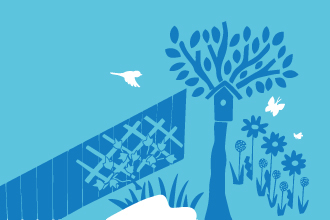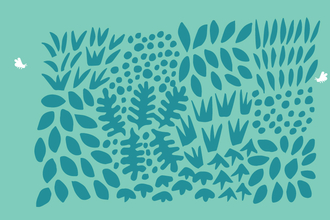The UK has lost almost half of its biodiversity since the 1970s. Much of this is caused by loss of habitat to commercial farming and construction. 72% of UK land is managed for agriculture, much of it intensively. However, we do have a secret weapon in gardens. Your garden is a space wherein you can control what happens, so you can manage it to offer replacement habitat where it has been lost in the wider countryside. You might feel your patch is too small to make a difference, but if you multiply garden numbers by average areas you get a total UK garden cover of 432,964 hectares - one fifth the area of Wales. Quarter of a typical city, and half its green space, is private gardens. Individuals, or better still, communities, managing their green spaces for wildlife really can make a huge difference.
So what has been lost, and how can we use our gardens to mitigate? Since 1950 we have lost 97% of wildflower meadows, 50% of ancient woodlands, 60% of lowland heaths, hundreds of traditional orchards, 300,000 miles of hedgerow and thousands of farm ponds, not to mention the vitally important natural networks connecting up the landscape. Gone, too, are traditional farm practices such as hedge-laying, ditching, haymaking and winter stubble fields which made the countryside a haven for so many species. By bearing in mind the essential habitats lost, we can offer alternatives. Never forget that what we consider ‘garden’ birds were once woodland species – robins, great tits, blackbirds and great spotted woodpeckers have all adapted themselves to new habitats in town gardens. More recently, goldfinches have adopted seed feeders where they once relied on farmland weed seeds and winter stubbles. Friends in town have regular visits from foxes and hedgehogs, and I even get reports of partridges using gardens in the centre of Shrewsbury. Food is readily available in gardens but increasingly difficult to find in the wider countryside, and as more and more gardeners are turning to wildlife-friendly methods, more species are going to discover the benefits of urban life.





